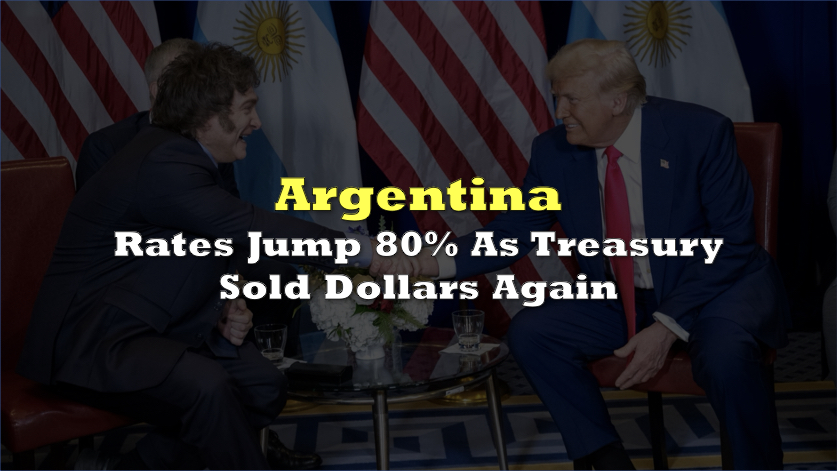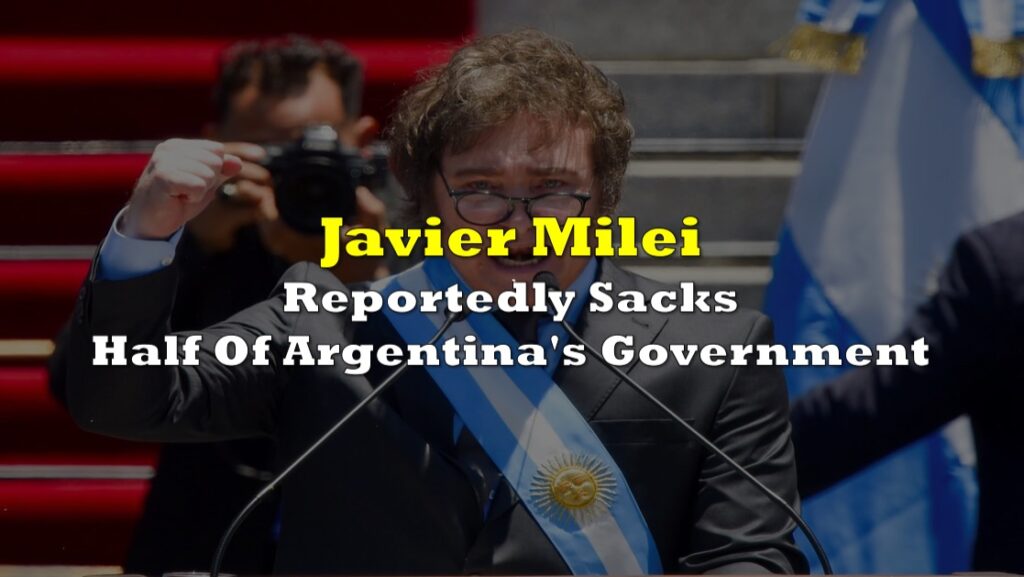Argentina’s money-market rates jumped over 80%, as a cash crunch forced the Treasury to sell $1.3 billion of dollars in the past week to steady the peso, leaving roughly $1 billion in its own dollar deposits and pushing the crisis toward a pivotal stretch of repayments and elections.
On Monday, the administration sold $450–$480 million to cap the peso’s daily slide at 0.4%, according to trader estimates, marking a fifth straight session of intervention by the Treasury rather than the central bank.
In the parallel market, the street rate moved beyond ARS 1,500 per US dollar while the official market hovered near ARS 1,430, widening the gap even after the government reinstated a 90-day ban on reselling dollars and ramped up FX-futures sales.
The central bank’s firepower remains largely sidelined by the International Monetary Fund accord, which limits discretionary sales to moments when the exchange rate breaches a floating band. Although the bank stepped in three times last month and sold $1.1 billion, recent stabilization has relied on Treasury cash.
Futures imply up to a 60% depreciation over the next 12 months, exceeding inflation expectations and signaling limited confidence that current measures will close the dollar gap.
Authorities are preparing to repay $500 million in November, a near-term test as Treasury dollar balances thin and market access remains stressed. Dollar bonds fell across the curve, with 2035 notes down more than 0.5 point to 56 cents on the dollar, based on indicative pricing compiled by Bloomberg.
President Javier Milei heads into national midterm elections on Oct. 26 after a landslide defeat in a provincial vote last month.
Treasury Secretary Scott Bessent pledged a financial lifeline and planned discussions with Economy Minister Luis Caputo and central bank chief Santiago Bausili in Washington. The timing and size remain unspecified.
Bessent announced last week that Washington is considering a $20 billion credit line, currency swaps with Argentina’s central bank, and the purchase of government bonds to support the embattled South American nation.
Information for this story was found via Bloomberg and the sources mentioned. The author has no securities or affiliations related to the organizations discussed. Not a recommendation to buy or sell. Always do additional research and consult a professional before purchasing a security. The author holds no licenses.









